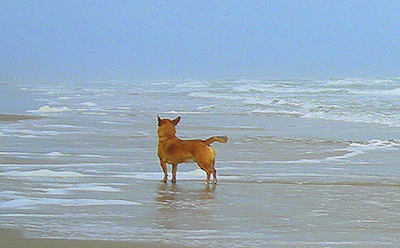There is a great temptation to say that Mary and Martha are two sides of the same coin, and I think the writer of this passage would agree. Sometimes, though, that view is used to justify a life of activity to the neglect of holy leisure. There is another way to read today’s passage. It calls us to examine our busy lives and to acknowledge that the trade-off for the idol of appearing busy (and important) may be higher than we think.
Just to recap: Jesus is visiting Mary and Martha at their home in Bethany. It’s just outside Jerusalem. Obviously, they want to put out a nice meal for Jesus and his disciples, but Martha is the one doing all the work. Mary is just sitting quietly at Jesus’ feet. This is a pretty revolutionary act since only men were allowed to sit at a teacher’s feet, so Mary is living into her own prophetic role. But she is not putting in her share of the work in the kitchen, and Martha is not happy about it. Martha appeals to Jesus to intervene – a shocking thing to ask of a guest – and Jesus replies that The One Thing is all that is needed, Mary has chosen a better path.
Nearly two thousand years on we are left with the question of why, if Mary has chosen the better path, we often choose to model our lives on the example of Martha.
The answer is simple. We want to justify ourselves. That is the sin of Martha, the sin of the priest and the Levite in the preceding verses, the sin of the lawyer in the verses before that, and the same sin that besets many of us. We want to be justified.
Let’s back up a little and connect these stories. In verses 25-37 there is a story about a lawyer who wanted to justify himself. He asked Jesus a question, “Rabbi, what must I do to inherit eternal life?” Jesus answered the question with another question, “What is written in the law?” And the lawyer answered correctly: “Love the Lord your God with all your heart and with all your soul and with all your strength and with all your mind;’ and, ‘Love your neighbor as yourself.” (Luke 10:27)
That wasn’t good enough for the lawyer, though. He wanted a different answer; one which would show that he had already earned eternal life. So he asked Jesus another question, “Who is my neighbor?”
Jesus’s answer to that question didn’t satisfy him either, and Jesus sent him away.
Today our readings fall on the heels of this encounter. We have Mary who loves God, and Martha who loves her neighbors. They are two sides of the same coin. There’s an interesting thing, though. These two great commandments are always given in a certain order. You never her them referred to as, “Love your neighbor and love God with all your heart.” It’s always the other way around. Loving God, The One Thing, comes first. That’s one of the ways the Bible writers let us know that it’s more important.
It is only when we have entered into the life of The One Thing, lingered there with God, listening, praying, and being enlarged that all our activities have any meaning. All love flows from The One Thing. Holy leisure is not just what we get when we have time left over, it is the incubator of meaning. Without holy leisure, time at Jesus’s feet, there can’t be any justification through actions. They go together, and the one follows the other.
It is hard to find time for the leisure that is required for real love to grow, but if we don’t we are only going half-way. An hour alone with Jesus is as important as any of the other things we do. It may not seem important. After all, anybody can do it. But we are called to inactivity at least as much as to any activity, to quiet as much as to speaking out, to The One Thing as much as to any plurality of other demands.
What can you do today to cultivate holy leisure for yourself?
+++++
Linda McMillan “Lindy” Lives in Shanghai, China.
+++++
Photo: Holy Leisure, Linda McMillan, Surfside, Texas, 2009

